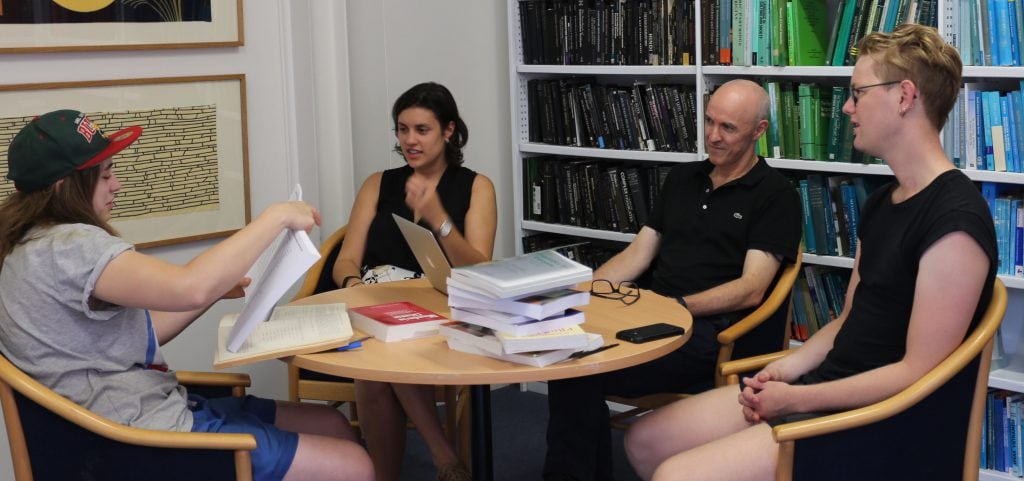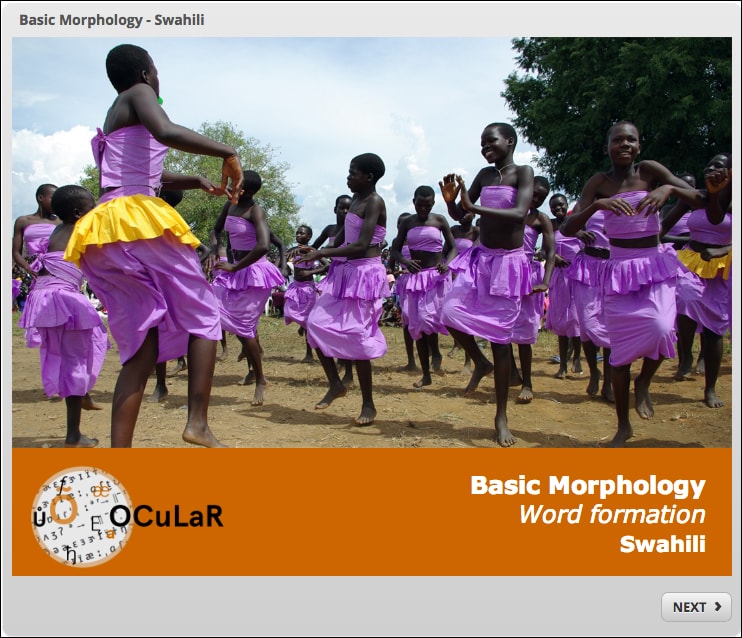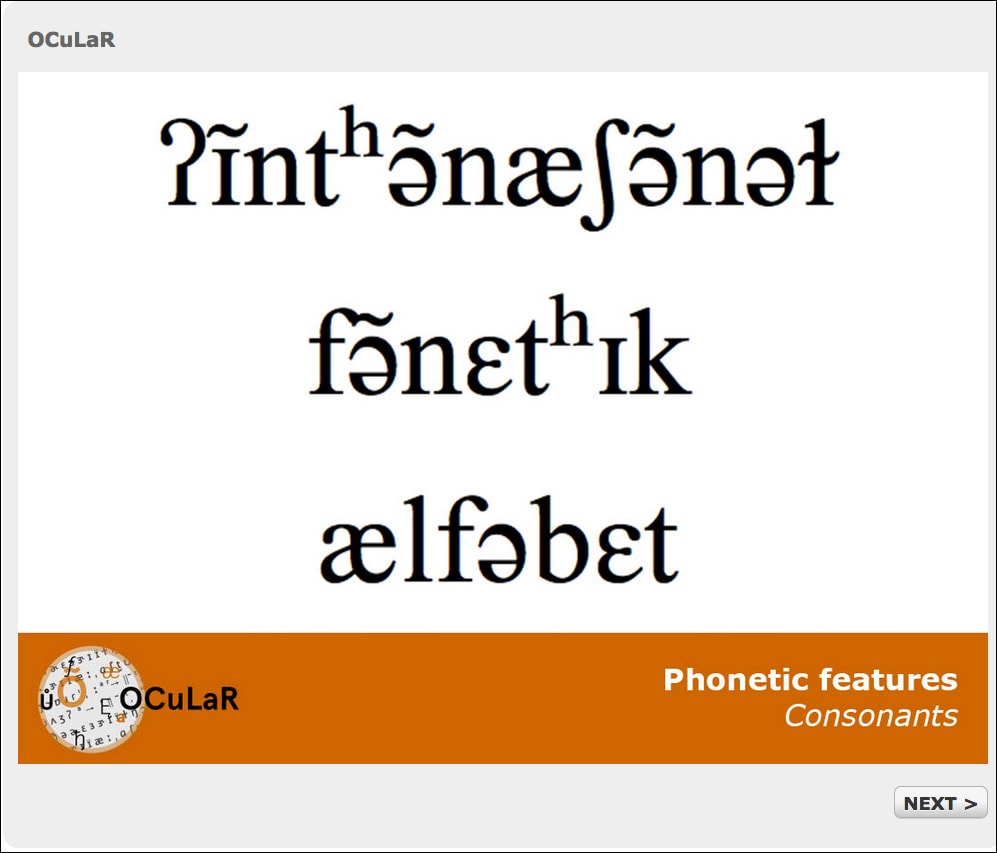
OCuLaR, the Online Core Linguistics Resource, is one of the 2016 strategic educational innovation grants currently in the final stages of development.
Professor Nick Enfield is leading the project and made the decision to develop the resource in partnership with three students who had completed 3rd or 4th year of the Linguistics major; Georgia Carr, Marlena Lutz-Hughes and Gus Wheeler. All are tutoring in the Department in 2017, which will provide them with the opportunity to experience teaching with the resource they have co-created and see the student response to it.
The self-study resource contains problem sets at varying levels of difficulty, with appropriate scaffolding to help undergraduate students to develop linguistic problem-solving abilities. It will be available consistently to students across their entire candidature in Linguistics.


Students as collaborators
While it’s not unusual to consult with students by asking them to review materials created by academics, or to provide feedback, partnerships involving co-creation of content require higher levels of responsibility, depth of understanding and creativity from the students involved. Not to mention many more hours of input. Unsurprisingly, being paid for the work is an important ingredient in getting the appropriate level of output and commitment, as well as making students feel valued and responsible for the project outcomes. University strategic educational grant funding allowed the students to be contracted to be part of the team on this project.
To be worth undertaking for both academics and students, partnership projects need to be authentic, adding real value to the University. In the case of OCuLaR, Nick and the tutors see enormous benefits for both the undergraduate students and themselves, of having a database of well-designed problems, more accurate and consistent than before.
The students have been developing the linguistic problem sets from legacy materials in the department as well as sourcing additional problems that complement the existing curriculum. As they learned to translate the problems to the online context, they have gained experience collaborating with the educational designers from the Educational Innovation team and with the copyright officers from the University Library.
Team member qualities
Student
Nick believes the most important qualities for students taking part in partnership projects are foremost, a love for the discipline, then being reliable, efficient, creative and smart.
He is aware that the students, due to their relative closeness to their undergraduate years and their emerging dual understanding from both the learner and teacher perspectives provide him with “much-needed insights.”
Academic
He believes that the foremost qualities for an academic leading a group of students as partners are trust, along with the ability to listen and to ensure that lines of communication are open all the time; also clarity of reasoning to navigate the multiple ideas on offer and guide decision-making.
When guiding students in partnership projects, Nick warns against perfectionism and micromanagement which may be demotivating to the team, saying “You want outcomes to be excellent, but at a certain point there is little significant difference [in choosing one option over another]. … Choose your battles. If you are worried about losing control you possibly shouldn’t be doing it.”
For their part, the students, independently praised Nick’s openness, clear justifications for his decisions and ability to listen to their point of view. Knowing they were able to safely challenge Nick and have their justification for the point heard was very important in establishing themselves as intellectual collaborators, rather than feeling contracted to carry out a preordained task.

They’ve had a lot of creative input and I’ve been able to trust their judgment on a lot of calls that we’ve had to make.
– Professor Nick Enfield, Project Leader
Shared values for successful partnerships
The Higher Education Academy, UK in Engagement Through Partnership (Healey, Flint and Harrington 2014, pp. 14-15) proposes shared values that underpin successful student-academic partnerships. These are strongly present in the OCuLaR team and include:
- an authentic rationale for involvement,
- inclusivity,
- reciprocal benefits for all involved,
- appropriate distribution of power
- the right to critique and challenge,
- trust,
- a sense of belonging and worth
- collective responsibility for the project outcomes.
Student work process
After Nick’s initial briefing, in which he outlined the project goal and helped to define tasks, the students had freedom to develop a method of working.
When asked about how the team reached consensus or final decisions, Gus stated that it wasn’t always easy. Being invested in the project meant that it could be hard to let go of cherished ideas, however the inevitable disagreements that arose from this were never personal but about making the project as good as it could be.
In an endorsement of teamwork over individual work, Georgia said she was aware of how the combination of their individual inputs, despite sometimes slowing the progress down, ultimately made a better project. “It’s amazing that despite us all having taught these units before and all of us having studied these subjects; we all have something that the other person hasn’t thought of.”
Benefits to participants
Both Nick and the students independently talked of aspects of the partnership that energized them. Nick said that it was a very rewarding experience watching the students take on a new role and responsibilities and run with them and thrive. There were also benefits for his teaching.
The more you get to know students by working directly with them, the more you see their potential. It makes you more attuned to seeing that in students you are meeting for the first time.
– Nick Enfield
The students identified the following benefits as a result of participating in the project:
- A deeper understanding of the subject matter
- Teaching and learning insights which they believed would make them better teachers
- Work experience, with development of strengths in project management, problem-solving negotiation and administration
- Mentoring into the discipline
- Development of professional identity
I guess there’s a point at which you consider yourself a Linguist as a profession. I don’t know that I’m quite there yet … It [taking part of this project] furthers that idea that it’s not just something you are studying – it’s the thing you do.
-Marlena Lutz-Hughes
Sources
Healey, M. Flint A. and Harrington, K. 2014. Engagement through partnership: students as partners in learning and teaching in higher education. https://www.heacademy.ac.uk/system/files/resources/engagement_through_partnership.pdf
Interview with Nick Enfield, University of Sydney, 2017
Interview with Georgia Carr, Gus Wheeler and Marlena Lutz-Hughes, University of Sydney, 2017
The student partnership project was made possible by Strategic Education Grant funding provided by the Office of the DVC Education.




